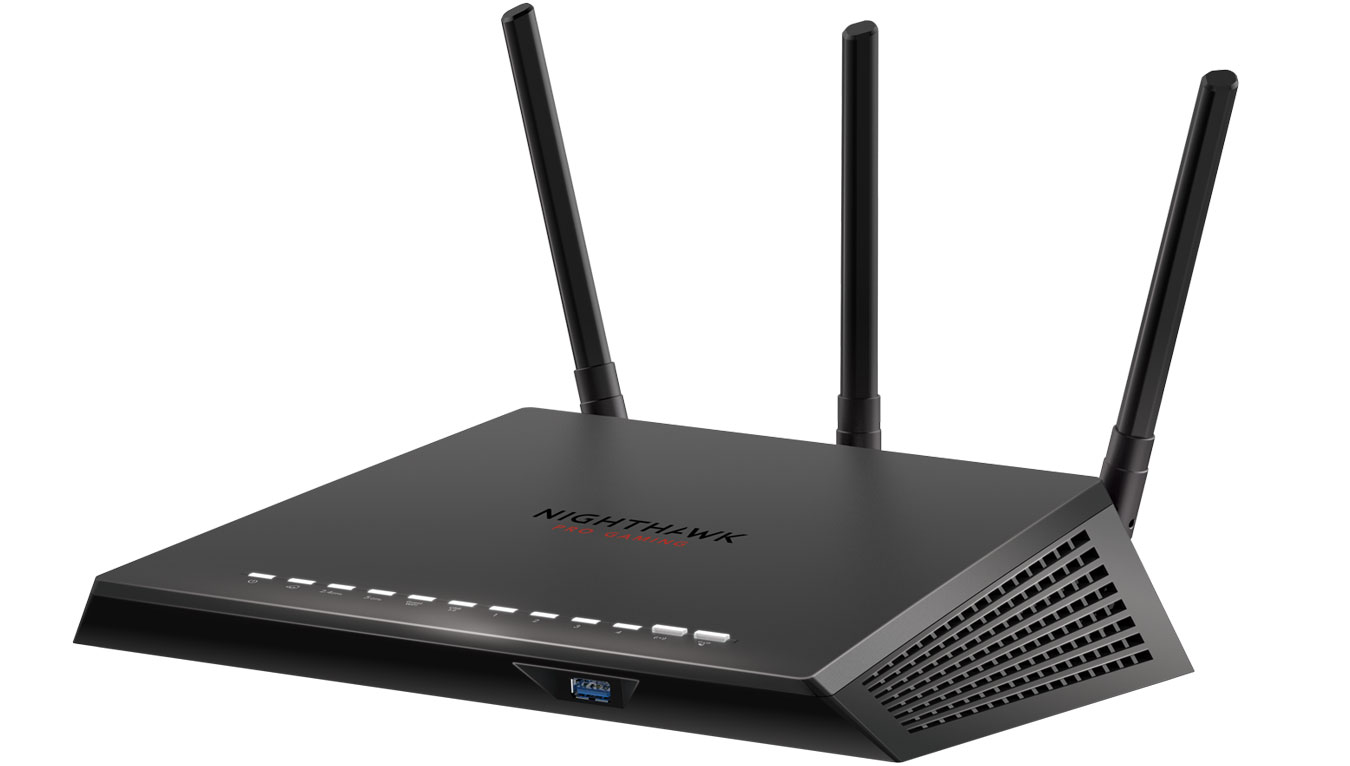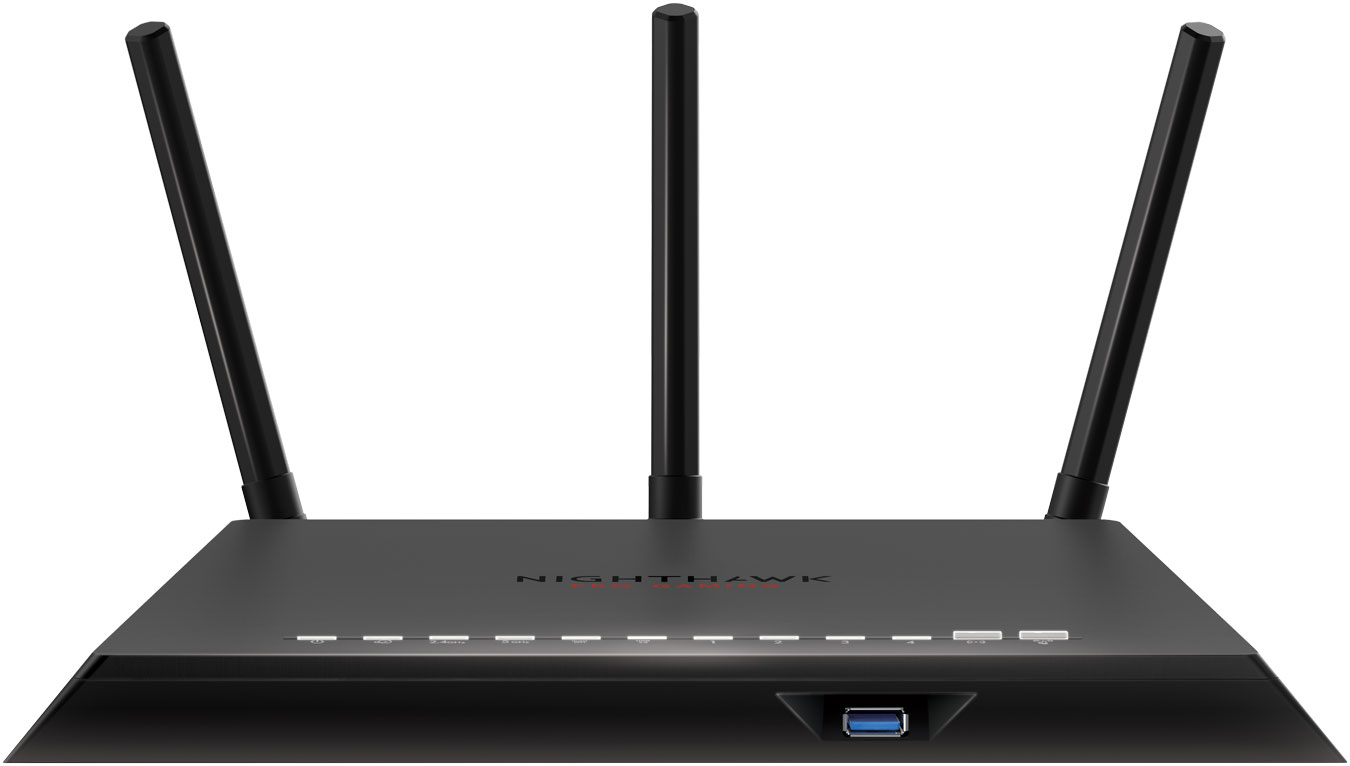Netgear is expanding its Nighthawk Pro Gaming router line with a more affordable model that still offers high-bandwidth and low-latency connectivity for serious gamers. It benefits from the same specifically crafted gaming router operating system as the company’s higher-end alternatives, and includes a specialized software dashboard for monitoring and tweaking the connection to avoid lag at the most inopportune times.
For gamers looking to take advantage of the network streamlining that Netgear offers with its high-end Nighthawk routers, the cheapest option until now was the XR500,which sells for $300. While that router does enjoy greater maximum bandwidth than the new XR300, gaming isn’t something that requires masses of bandwidth. What it needs is low-latency and a stable connection, and that’s where the XR300 excels — at a lower price tag.
Set to go on sale in April for $200, the XR300 is rated AC1750, so it still has plenty of bandwidth. It sports four Gigabit Ethernet ports and support for 802.11ac Wi-Fi, with wireless connections boosted by three external antennas. The XR300 also supports beamforming for a more reliable and robust wireless connection on both the 2.4GHz and 5GHz spectrums.
It provides a number of enhancements for gamers to help improve their connection, no matter how they connect to the router. Like its more expensive siblings, the XR300 is built on the DUMAOS platform, giving gamers access to a dashboard with a number of gaming-centric networking tracking and customization features. Geo-filtering helps you connect only to local gaming servers and nearby players, ensuring that server distance isn’t a concern in your games.
You can also use the dashboard to prioritize gaming traffic, leaving less critical devices like your smartphone or smart TV with less upload or download capacity so that you have all the bandwidth you need for your games. All of this can be viewed and monitored in real time using the XR300’s dashboard.
While the XR300 does focus on speed, it doesn’t scrimp on security. Netgear has included built-in VPN support to allow for quick and easy network obfuscation using the OpenVPN app on iOS and Android, as well as Wi-Fi encryption using the 128-bit AES standard.
We’ll need to wait until April to see how well this new Nighthawk router performs, but we did give the Netgear X8 a coveted spot in our best gaming router guide. Check it out if you want some alternative options.
Editors' Recommendations
- Why the Vision Pro could be huge for gaming, but not how you think
- AMD’s new anti-lag tech could land you with a ban in games
- Meet LOQ, Lenovo’s new, aggressively priced PC gaming brand
- Lenovo’s cool new gaming phone leaked, but you can’t buy it
- Netgear’s new Nighthawk gaming router brings Wi-Fi 6E speeds to the masses







